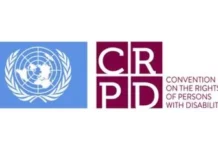Traditional education in psychiatry often neglects the issue of human rights. A new qualitative study published in Health and Human Rights Journal attempts to fill this gap by analyzing how a service user-led human rights teaching program for medical students fostered new awareness and understanding of human rights in relation to psychiatry.
Through this program, medical students were able to reflect on their own biases, examine how their education and training reflected those presuppositions, and explore how they would like to contribute to much-needed changes in the field to respect the dignity of those they serve. The authors, led by Peter MacSorley, of the Mental Health, Addictions, and Intellectual Disability Service in New Zealand, write:
“The teaching of bioethics is a core component of most medical school curricula, though poorly evidenced and assessed. Within psychiatry specifically, there are critical issues related to human rights that are often overlooked or neglected, despite calls for action for over two decades. Mental health legislation allowing for patients to be detained is the most obvious issue; however, the routine use of informal coercion, the rights to accept or refuse treatment, the right to full participation in society, and even such basic rights as housing remain relevant. While no medical curricula can cover all the elements that future doctors will need, the issue of human rights in relation to psychiatry is key to future good practice, particularly in light of international legal obligations and growing rates of mental distress in communities.”
 Human rights in mental healthcare have gained increasing attention since the Convention on the Rights of Persons with Disabilities (CRPD) in 2006. The United Nations Human Rights Council and reports of the Special Rapporteur have brought awareness to human rights and medical education, describing both psychiatrists and service users as “hostages of an ineffective system” and calling for “changes in medical education” that address power imbalances and “incentives to use coercion,” such as fears of legal action.
Human rights in mental healthcare have gained increasing attention since the Convention on the Rights of Persons with Disabilities (CRPD) in 2006. The United Nations Human Rights Council and reports of the Special Rapporteur have brought awareness to human rights and medical education, describing both psychiatrists and service users as “hostages of an ineffective system” and calling for “changes in medical education” that address power imbalances and “incentives to use coercion,” such as fears of legal action.
The University of Otago in New Zealand, aware of the need for medical schools to educate their students on human rights and the implications of their actions as medical professionals, employed new strategies in its approach to education. Service users assisted with co-developing and delivering modules with the aim to “counter stigma, reduce discrimination, promote recovery, and improve human rights.” Educational interventions included content focused on human rights, placements with organizations that were led by service users, recovery-focused approaches, and learning assessments.
In the current study, researchers examined the impact of this training and education, specifically in relation to clinical experiences and a workshop hosted by the university for medical students in their second year of mental health training. The six-hour workshop is facilitated by mental health service users who have first-hand experiences of their rights being violated, which they share with attendees. The workshop emphasizes antidiscrimination and positive interactions with service use over time. It begins with an introduction of the CRPD and what it looks like in practice and then includes a discussion of the use of the Mental Health Act and how practices like seclusion and restraint inherently violate human rights, as well as alternative strategies to reduce those coercive strategies.
Students were asked to write a reflection centered on human rights in light of their educational and clinical experiences. Reflections were then analyzed through grounded theory to identify themes across students’ experiences. A total of 38 students agreed to participate in the study. Most of the students were women (53%), New Zealand European (66%), with a mean age of 24. 22% of participants were Asian, 10% were Māori, the Indigenous population in New Zealand, and 12.5% were of other ethnicities.
MacSorley and colleagues identified two major categories through this analysis, “understanding the system” and “self-reflection.” Within these categories, individual themes were noted.
The “understanding the system” category included students’ evaluations of clinical, legal, and ethical issues that arose during their learning experiences. One theme identified by researchers in this category was “appreciating advocacy.” Students noted gaining an increased understanding of systemic issues such as stigma, power imbalances, and a tendency toward paternalism by professionals, which led them to reflect on the need for patient advocacy.
“Appreciating complexity” was another theme that fell under this category, with participants reflecting on the complicated nature of psychiatric care, noting that while the denial of rights is harmful, there are times when denial of rights is justified and that navigating this ethical conflict is challenging. One participant wrote:
“[What] I have found most difficult to come to any conclusion on is the dilemma of treating a patient in their ‘best interests’ versus respecting their autonomy and their right to make decisions. In the complex area of mental health, I feel this can sometimes be an impossible conundrum. It is incredibly difficult because I can see both sides of this dilemma, and they both have good reasons behind them … I am still unsure of the answer, and I don’t think there is a ‘right’ answer as such.”
The theme of “developing a personal perspective” included the idea that protecting human rights is morally necessary and that the field and society itself need to change to allow for the protection of rights.
The over-arching category of “self-reflection” was comprised of participants’ exploring their own backgrounds, attitudes, and preconceptions related to human rights.
“Realizing naïveté” was a theme identified in this category, as participants came to terms with realizing that the actions they may engage in as future physicians, such as coercive strategies, are considered human rights violations by the United Nations.
This realization opened participants up to the learning process and to hear the lived experiences of service users, which represented another theme – the “power of lived experience.” Hearing the personal narratives of service users resulted in students’ reflecting on their own morals in light of participating in practices that impede upon the rights of others. One student reflected:
“It was devastating to hear the stories of many of the individuals I came across, and it opened my eyes to true suffering and conflict. It was very clear to see how denial of their human rights, through belittlement and prejudice, had a large detrimental impact on their recovery.”
Experiences in the program provided students with “thought-provoking teaching,” another theme identified by researchers. Engagement with service users and their lived experiences prompted students to critically examine their level of comfort with current practices in psychiatry and allowed them to consider their own internal biases and prejudices.
The final theme that arose through the analysis was the “awareness of the need for change,” which cuts across both the major categories of “understanding the system” and “self-reflection.” Researchers discuss how these categories are not mutually exclusive but rather influenced and informed one another.
For example, as participants became more aware of the injustices associated with the mental health system, that gave them pause to reflect on their own moral values and their willingness to participate in a system that violates human rights. This, in turn, allowed them to consider how they, as future clinicians, could navigate ethical dilemmas in a way that maintains human rights and dignity.
This self-reflection prompted them to try to understand the system on a deeper level. The cycle continued and eventually resulted in participants desiring change for the system as a whole, including calls for advocacy, a need to protect service users’ rights and autonomy, and a sense of discomfort with the status quo.
Overall, service user-led teaching with an emphasis on human rights for medical students was effective in facilitating students’ gaining a deepened understanding of the injustices inherent in the field and prompted them to engage in critical reflection on their future roles and participation in this system, as well as to explore changes that can be made to address these issues and cultivate the development of practices that maintain the human rights and dignity of service users.
A limitation of this study is its use of a qualitative method, which can lead to difficulties in generalizing it to other settings. However, there is no known quantitative tool to measure human rights teaching, and this study opens up possibilities for themes to be explored in future quantitative research. Other limitations include constraints related to data collection, small sample size, and its predominantly White female population, word limits associated with the assignment, and the possibility that students may have been influenced in their reflections by seeking a passing grade and, therefore, may have held back if they had differing opinions.
Calls to make human rights central to global mental health approaches have been made by professionals from the United Nations and World Health Organization. However, despite countries ratifying the CRPD, many policies still lie in direct opposition to the rights of individuals with psychosocial disability.
The inclusion of service users in mental healthcare and research has gained increased momentum over recent years and has led to positive developments in areas such as more meaningful mental healthcare, an emphasis on choice in therapeutic perspectives, new approaches to psychiatric drug tapering, new perspectives on the negative impact of long-term antipsychotic use on recovery, and has led to the improvement of the quality and value of research overall.
Moreover, the addition of lived experience to healthcare training has been shown to improve shared decision-making practices, which provides further support to MacSorley and colleagues’ findings. Incorporation of those with lived experience in positions of leadership will facilitate the democratization of psychiatric knowledge, which in turn will allow for necessary changes in the field to be made to ensure that service users’ human rights are upheld.
****
MacSorley, P., Gordon, S., Gardiner, T., &Giles Newton-Howes, G. (2023). Awareness of the need for change: A constructivist grounded theory of medical students’ understanding of human rights in mental health. Health and Human Rights Journal, 25. (Link)















This article does a good job providing what many service users don’t want to happen when they are expressing some challenging behavior. What is absent in this write-up is what specifically they would want service providers to do at such times.
Report comment
Have you tried asking service users this question?
Report comment
No amount of information or reflection will change psychiatry’s intrinsically biased core. And as long as psychiatry has legal authority over people’s lives, it will continue violating people’s human rights.
There will always be power struggles in and around psychiatry, because psychiatry is ultimately about power, not health or human rights. Any change is just putting caramel on a rotten apple.
Report comment
Well said, Birdsong.
Report comment
Thank you, KateL.
Report comment
What a great article! I think by integrating human rights principles into their education, students gain a deeper understanding of the ethical and social dimensions of mental health care.
Report comment
NEWSFLASH: “Mental health consumers” need education about human rights more than the people who work in it. And little good will come as long as “mental health professionals” control the narrative.
Report comment
Great article! I found the information you shared to be really insightful and helpful. Thanks for sharing your expertise.
Report comment